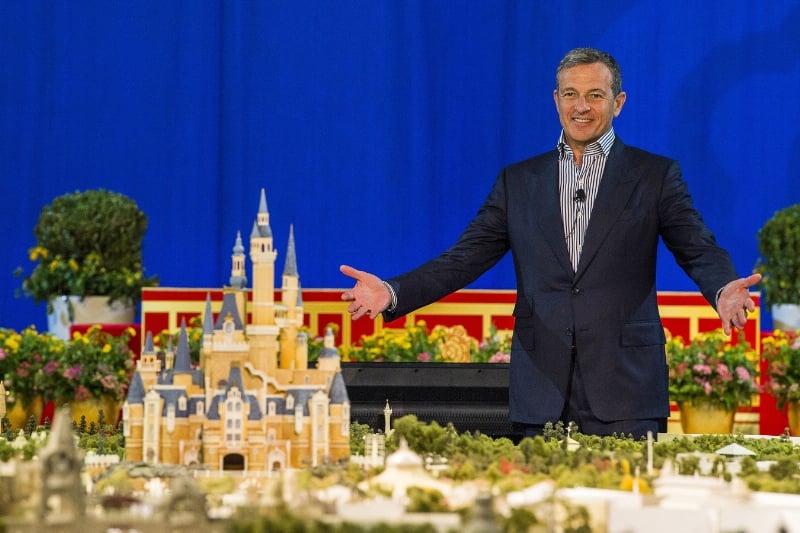On Nov. 20, Disney shocked Hollywood when it announced that Bob Iger would return as CEO after less than a year away. Two days later, Disney’s “Avatar: The Way of Water” landed a coveted China release. Then, the sci-fi film received a rare release extension in China that allowed it to run through Feb. 14, enabling it to gross more than $240 million in the country.
Though Disney insiders say China’s embrace of “Avatar” was unrelated to Iger’s return, its success and a string of good fortune for the company has raised eyebrows at rival studios. That’s because after seeing its Marvel releases denied entry to China for nearly four years, Disney recently announced that “Black Panther: Wakanda Forever” and “Ant-Man and the Wasp: Quantumania” were being waved into the country. (“Avengers: Endgame” in 2019 was the last Disney Marvel movie to secure a release in the Middle Kingdom, earning $632 million there.) And if things seem cozier between Disney and China, there’s no missing that a recent “Simpsons” episode that took a shot at the country’s human rights record never appeared on Disney+ in Hong Kong. The episode’s infraction involved a bit where a virtual tour guide tells Marge: “Behold the wonders of China. Bitcoin mines, forced labor camps where children make smartphones.” That joke was enough for the episode to receive the boot. The “Simpsons” move represents a stark difference from Disney’s recent approach elsewhere in Asia, where it chose to forego the release of titles including “Thor” and “Lightyear” rather than cave to pressure from censors over those films’ LGBTQ characters.
Though a few Disney movies landed a release in China during Iger predecessor Bob Chapek’s short stint, relations between the conglomerate and Communist Party authorities grew frosty. But with the return of Iger, who once told friends that he was considering a diplomatic post in China for the Biden administration and who was the key architect in opening Disney theme parks in Shanghai and Hong Kong, a thaw appears to be afoot. A Disney spokesperson dubbed the timing of the detente as coincidental, while another studio publicist says the “Simpsons” decision was made because the episode contained elements that would violate Hong Kong’s national security law.
Hollywood is mostly breathing a sigh of relief, because the entertainment industry has been concerned about its lack of access to China’s enormous market. But not everyone sees improved relations as a positive development. “Iron Man 3” co-producer Chris Fenton, who is the author of “Feeding the Dragon: Inside the Trillion Dollar Dilemma Facing Hollywood, the NBA, & American Business,” has been a critic of the industry’s self-censorship. He says the Disney-China rapprochement might help the CCP regime more than the company’s bottom line.
“Beijing knows market leverage fosters strength, so some official likely said, ‘Hey, we haven’t given Hollywood much access lately. [If] we do that much longer, studios will stop doing what we tell them and fearing what we may,’” Fenton explains. “Beijing will lose crucial sway in how filmmakers portray China globally in their films. So the recent approval of these big tentpole movies allows China to again say, ‘See, we let those in, giving you access to our massive market. Whoever brings an apple a day to the teacher can expect that reward. If you don’t, well …’ And, voilà, Beijing’s leverage returns.”
Beyond “Avatar: The Way of Water,” the China market is undeniably warming up again as its COVID restrictions ease. The country boasted nearly $1 billion at the box office during a single week in January, led by Zhang Yimou’s “Full River Red.” As Iger attempts to right the Disney ship after it lost more than $120 billion in market cap last year, he cannot afford to turn up his nose at the Chinese market. Chasing yuan comes at a public relations expense, especially as tensions between Washington and Beijing mount following the U.S.’s shooting down of a Chinese spy balloon. Iger has weathered publicity headaches since returning, namely investor Nelson Peltz’s threat to launch a proxy battle. While Iger cleared that obstacle when Peltz announced on Feb. 9 that he was abandoning his bid, another hurdle looms. That same day, a judge denied Disney’s bid to be dropped from Kaja Sokola’s lawsuit after a nearly three-year battle over the matter. The former teen model, who is the youngest known Weinstein accuser, has one of the last standing suits involving the former mogul. She filed it and named Weinstein’s former employer Disney as a defendant after New York passed a Child Victims Act in 2019, which briefly opened a window for underage victims of sexual violence to sue. The case will now go to the discovery phase, which could dredge up embarrassing details about what Iger and former Disney CEO Michael Eisner knew about Weinstein.
“The decision rejects all of Disney’s arguments that it cannot be responsible for its negligent supervision of Harvey Weinstein,” Sokola’s attorney Kevin Mintzer says. “As a result, we believe this will be the first case in the United States in which a Weinstein survivor will be permitted to pursue, with subpoena power, the full extent of Disney’s knowledge of Harvey Weinstein’s predatory behavior.”
Love Film & TV?
Get your daily dose of everything happening in music, film and TV in Australia and abroad.
Then again, Iger will likely be battling tough questions on multiple fronts, particularly when it comes to China. And any repeat of the pulled “Simpsons” episode will kick-start intense scrutiny. “Now it’s really dangerous for a studio to fix their Beijing problem because everyone outside China is watching,” Fenton says.”
From Variety US































